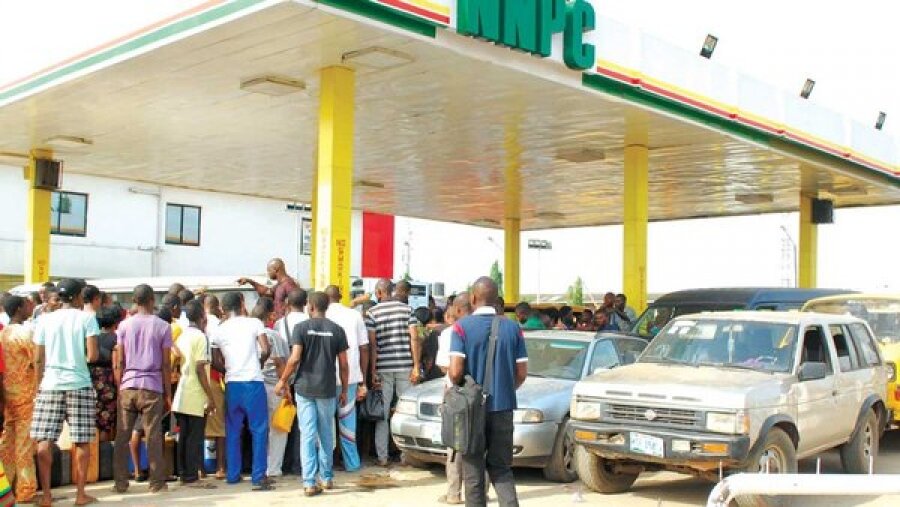
In Nigeria today, the removal of fuel subsidies has dealt a blow to the living conditions of many citizens. President Bola Ahmed Tinubu announced the removal of fuel subsidy in his inaugural speech on May 29, saying the government could no longer afford to pay with the country’s dwindling revenues and debt repayment obligations.
Two months after the announcement, fuel has gone from N184 per litre in May 2023 to N617 per litre, as announced by the government on Tuesday, a 335% increase in less than 60 days. The effect has led many families into further hardship, struggling to make ends meet and facing economic challenges that put additional stress on their everyday lives.
In response to the plight of Nigerians, the federal government has recently announced a proposed distribution of N8,000 per month for six months to support poor households. This initiative aims to relieve the most vulnerable during these trying times.
Nevertheless, the allocation of N70 billion to new National Assembly members for purchasing bulletproof vehicles, furniture, and other items has raised valid concerns and sparked mixed reactions about the fairness and priorities of government spending.
Read what Nigerians across the country have to say about the recent happenings in the country.
“I am a taxi driver, it is now a week since I parked my car because people are unable to pay the new transport fare, and if you carry passengers with previous rates, you will end up not getting the money to even buy fuel. That N8000 is nothing compared to the situation we are in today, here one mudu of rice is N2000, maize is N1200, and millet is 1000, so what will you buy with 8000? In fact, wallahi people are in suffering situation” – Lawan, Yobe state.
Nigerians, we don’t want to endure for a while, we want immediate magic to happen. Before things will be fine, they will pass through difficulties. Just like our life too, before you make it, you will pass through something. All I know is I will live to tell this story of what we are passing through now. To make Nigeria better, no be beans ooo – Rasaq from Oyo state.

Dominic from Oyo State, however, gave a different perspective. In his words, ‘Subsidy is necessary. But if you support the removal of subsidy (of which its aim is to cut costs) and you do not support and promote a reduction in the cost of governance and every other thing that makes this country spend more than it should, I think you’re missing a big part of the puzzle. I promise you, We’ll all be here in 2027. This subsidy removal will not amount to much. Not because the subsidy removal is not good, but because the government is insincere. I promise you.
“About the palliative, poor households won’t get it, they would disburse it through the notorious Ministry of Humanitarian Affairs and ask politicians to compile names of beneficiaries. When school children go on 3rd term vacation, I wonder how Okada riders and taxi drivers will cope. Well, some of them have vocational skills, while others would engage in criminal activities. Your car can not sleep at the mechanic workshop overnight, the following day battery and tyres would have gone. Our National Assembly members must intensify their efforts in providing vocational skill tools as part of their empowerment programs in 2023” – Ajibade, Ogun state.
“It is insensitive for the President to continue to pay refineries workers without working. Why is President not making a provision for recovery from the impact of subsidy removal on the citizens? Is NNPCL a public or private organization in operation?” Olaide, Kwara state.
Yusuf from Jigawa said “Hmmmm… This fuel issue is very frustrating. The masses are always the vulnerable ones because everything is surely going to be costly, including life itself. Our leaders never care about us, we just have to wake up to become independent. The N8,000 palliative is very unnecessary it’s never our need at the moment” – Yusuf, Jigawa state.
“Since the inauguration of the 10th assembly, I barely know if they have had any session concerning issues affecting the citizens, but they have been able to talk about their own working conditions and bulletproof cars for their principal officers. In my opinion, these monies should be used in the transportation sector, agriculture and for setting up of modular refineries all these will cushion the direct effects of subsidy removals.” – Phil, Lagos state.

“The 8,000 Naira palliative proposed by the federal government is another fraud. It’s the worst thinking of anybody in his right mind to have such thoughts, because 500billion naira at this present economy conditions the country, is a joke. If am in position to advise I will ask that the money be used in providing food stuffs in a control outlet and tickets given to citizens to buy food at a very reduced price this will go a long way to making sure people can afford foodstuff. The federal, state and local government should be together in synergy to introduce inter-state/city transport scheme under serious supervision of the federal government, reason being that, the state governors will always hijack the process and politicize it.The federal government should carry out maintenance in our refineries, as well as encouraging modular refineries to ease monopoly of the product so that Nigerians can afford it.” Leftist, Edo state.
Aminu from Bauchi said “It is good for the government to try as possible to reduce fuel price and not to allow petrol marketers to increase it. Community people live in hardship of this current recession. Food prices are high, a single measure of masara (maize), dawa (Guinea corn) and gero (millet) is now 1,200 – why is this poor development? – Aminu from Bauchi.
Omoyeni from Sokoto said “On the increase in price of fuel to N617, it’s really bitting hard on the public,but in my opinion,we need to create an awareness to reach the public on the need to hold our Governors responsible for further hardship. About #1trillion or more was shared this month, meaning that the Governors have more money,which is why we must be on them to use it for salary increase, improve the economy of the state and bring relief to the people. I am positive that the removal of subsidy will be beneficial to us at the long run of we can be on our Governors. Also, we can roll a campaign on alternative consumptions to petrol. We have LNG, CNG, solar as alternates and we must inform the public on this. Instead of the N8k palliative,the government can get buses for states and create terminals where the public will use for cheap transportation” – Omoyeni from Sokoto.
“The fuel increment will add additional suffering to the masses, because I am a taxi driver, it is now a week that I parked my car, because people are unable to pay the new transport fare and if you carry passengers with previous rates you will end up not getting the money to even buy fuel. That N8000 is nothing compared to situation we are today, here one mudu of rice is N2000, maize is N1200, millet is 1000, so what will you buy with 8000? Infact wallahi people are in suffering situation” – Lawan, Yobe state.
“The ongoing hike in fuel price is indeed very worrisome and unbearable. Howbeit if the aim for the removal of subsidy will be achieved, I’ll say let’s suffer once and for all. But the question is, how long will this last? Nigerian economy is controlled by fuel. This is because about 99% of the nation’s productivity is driven by fuel. For example, in the agricultural sector where we’ve little use of fuel especially those who are not engaged in mechanised farming, agriculture produce are still transported. This has placed the prices of commodities in the market very high.
Talking about the N8,000 palliative to cushion the sufferings, the president should cancel it completely because it’ll be a total waste of funds. Rather, the FG should review the salary structure of civil servants and then reduce the fuel price to a more affordable price” – Inyang, Cross River state.
While the proposed N8,000 palliative might provide relief to poor households, there are valid doubts about its effectiveness, and concerns persist over government spending priorities. Citizens’ diverse opinions show the urgent need for the government to take concrete steps and provide practical solutions to address the current hardships and frustrations.
Story by Deborah Ademola and Ayomide Ladipo.

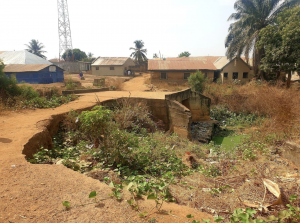
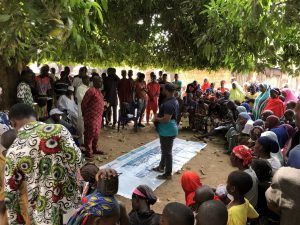
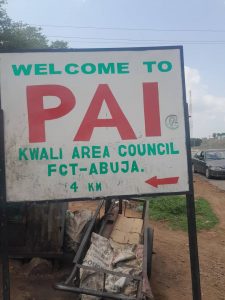
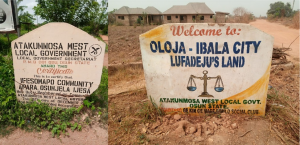
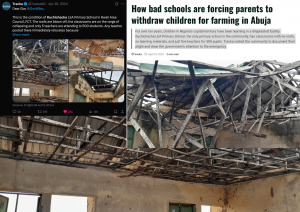
Truly, that #8000 will make no difference. Our Government, needs to rethink and plan properly how to manage the impact of fuel subsidy, not given token to the vulnerable populace in Nigeria.
True! We hope the government gets it right. Nigerians deserve to rest!